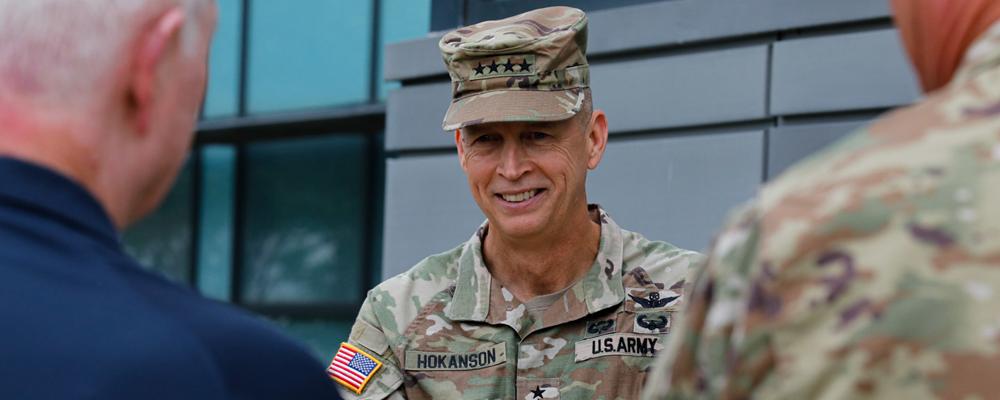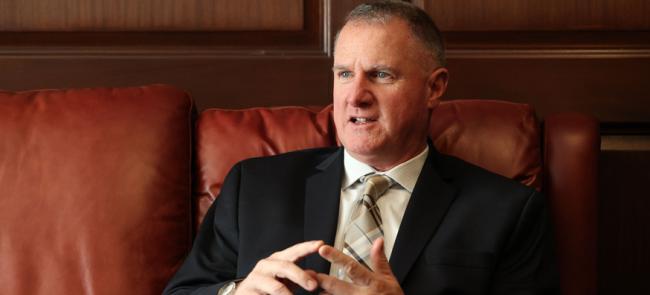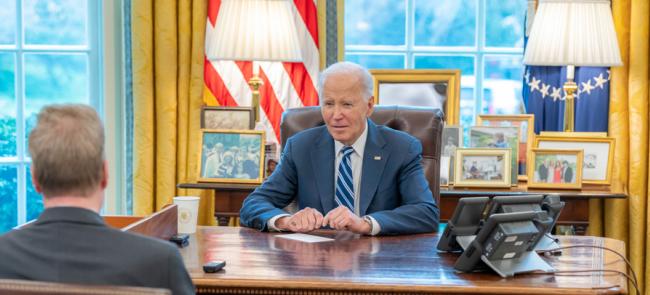
From the Chief: Big Anniversary
This month, our nation celebrates 247 years of independence. We mark the occasion with fireworks, parties and parades, everything wrapped in red, white and blue. We think of the Founding Fathers and the Declaration of Independence, and we wear our national defiance as a point of pride.
But we don’t often stop to think about how we didn’t do it alone.
Gaining independence from England was a formidable challenge, and our fledgling nation’s leadership recognized international diplomacy would be critical in this endeavor. Our most critical alliance was with France. In 1778, the French and American governments signed the Treaty of Alliance and the Treaty of Amity and Commerce.
These accords recognized the United States as an independent nation and helped establish our nation’s role in global trade. But more than that, the French provided the Continental Army with badly needed supplies, including weapons, arms, ammunition and uniforms, as well as troops and naval support.
Alliances and partnerships are an enduring strength. They are the difference between victory and defeat.
Even in our nation’s earliest days, the lesson was clear: Alliances and partnerships are an enduring strength. They are the difference between victory and defeat.
That’s why it is fitting that we also celebrate the 30th anniversary of the State Partnership Program this month.
The SPP began with a simple idea, captured in a letter from then-Chairman of the Joint Chiefs of Staff Gen. Colin Powell to then-chief of the National Guard Bureau Lt. Gen. John Conaway.
General Powell wrote, “Russia and other republics of the former Soviet Union are engaged in an unprecedented reorganization of their political, economic, and military systems. They want and need our help. We are currently in the process of enhancing our military-to-military contacts with these republics with the intention of helping them create a responsible military force within a democratic society.”
Because of our legacy as state militias — and because it would seem less provocative to Russia — the Guard was the obvious choice to lead these engagements. In addition, the Guard had — and continues to have — experience with disaster response, search and rescue and civil-military relationships. All these topics were of great interest to the former Soviet states at that time. And so, on April 27, 1993, the SPP began.
In its first year, the SPP grew from three partnerships to 13, all in the U.S. European or Central Command areas of responsibility. The program added its first Southern Command partners in 1996, its first Indo-Pacific Command partners in 2000, its first Africa Command partners in 2003 and its first Northern Command partners in 2005. Within the first 12 years of its existence, the SPP and its powerful impact reached around the globe.
In my almost three years as chief of the National Guard Bureau, I’ve had the opportunity to visit some of our state partners and see the value of this program. One of my most recent experiences was in Vietnam, where I watched members of the Oregon Guard work with their Vietnamese partners to prepare for, mitigate and respond to disasters.
Watching our forces work together and learn from each other during the disaster management exercise, I was struck by the opportunities and challenges of our shared world. For instance, both Oregon and Vietnam face similar natural disasters: tsunamis, landslides, floods and wildfires. In these SPP engagements, we learn a lot from each other, exchanging best practices so we can minimize loss and suffering during a crisis. The lesson was clear: We’re in this together.
Our global challenges come in the form of natural and man-made disasters, energy crises, pandemics and malevolent actors. These challenges aren’t confined to a single country, a single region or a single hemisphere. Both directly and indirectly, they impact all of us. They are our collective problem — and addressing and overcoming them is our collective responsibility. That is only possible with allies and partners at our side.
While we celebrate our independence, let us bear in mind our interdependence and commemorate 30 years of the SPP, whose mutually beneficial enduring relationships help make us Always Ready, Always There.
The author is the chief of the National Guard Bureau and a member of the Joint Chiefs of Staff.



